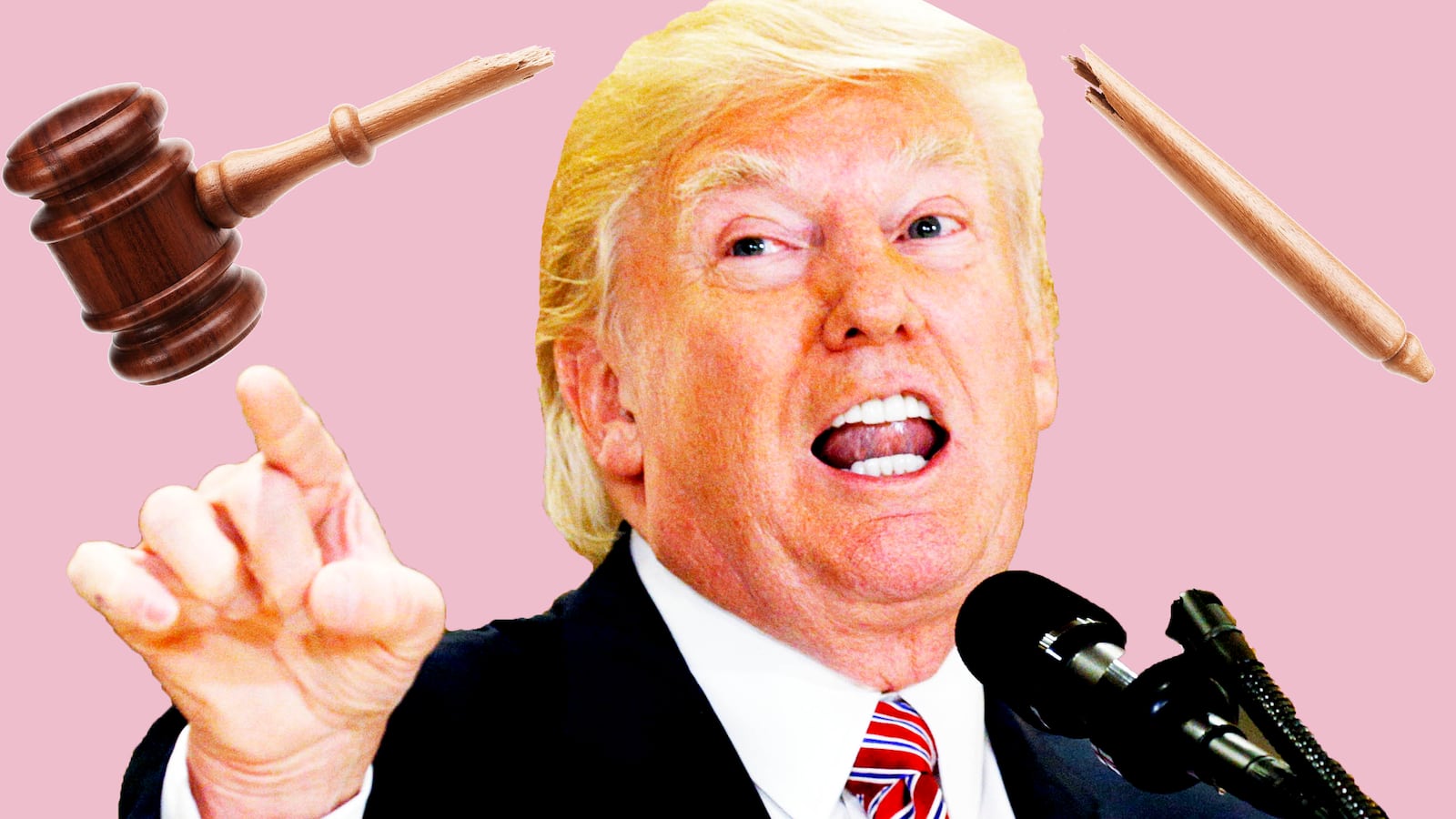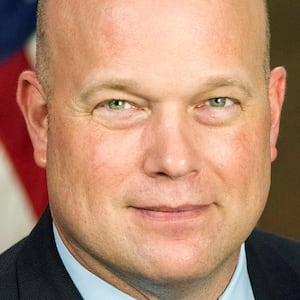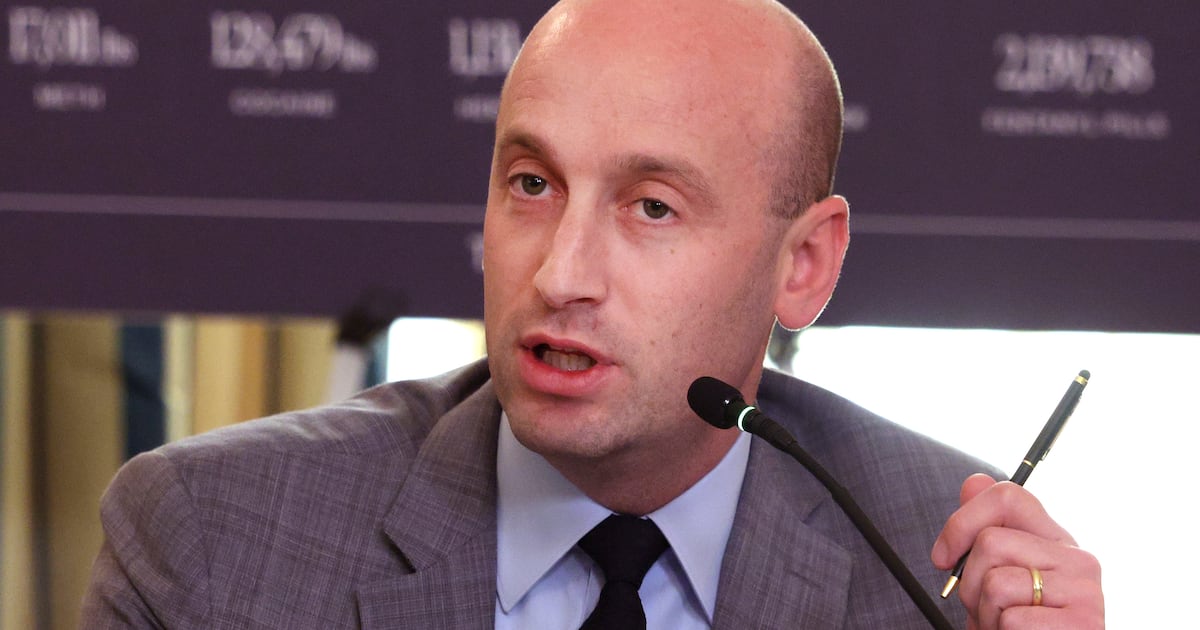In the nearly two years since he took office, President Trump has repeatedly tried to obliterate the wall that has long separated the White House from the Justice Department—a wall that is critical to insulating law enforcement from politics and preserving the rule of law.
From pushing then-FBI Director James Comey to drop an investigation into his national security adviser, Michael Flynn, to railing against, and eventually firing, Attorney General Jeff Sessions for recusing himself from the Russia investigation, Mr. Trump has shown that he expects the men and women of the Justice Department to serve as his personal policemen and prosecutors.
On Friday, CNN revealed his most astonishing act yet, one that in our view clearly violated the law. According to CNN’s reporting, the president recently “lashed out” at acting Attorney General Matthew Whitaker over court documents referencing the president in the guilty plea by his former lawyer and fixer Michael Cohen. Worse, a week later Mr. Trump pushed Whitaker on “why more wasn’t being done to control” the Southern District of New York prosecutors who brought the case against Cohen. The president of the United States, in that moment, was essentially pressuring an acting official whose job hangs on his personal whims to shut down an investigation into himself.
On Christmas Eve, Mr. Trump tweeted that he never lashed out at Whitaker and, predictably, attacked the story as “Fake News.” But he notably didn’t deny other details of CNN’s reporting.
The SDNY’s case has already netted one guilty plea for a felony crime of violating campaign finance laws. In his guilty plea and sentencing allocution, Mr. Cohen stated that he worked “in coordination with and at the direction of Individual-1,” who is widely understood to be the president. In addition, it is clear from the charging documents against Mr. Cohen that the Trump Organization, which was owned and controlled by Mr. Trump and his children at the time of the conduct, is likely implicated in this criminal scheme as well.
Taken together, these facts make clear that President Trump, the Trump Organization, and at least one current executive (likely one of Mr. Trump’s sons, who together manage his company today) are subjects and possibly targets of the Southern District’s investigation. In other words, depending on the course of that probe, the president, his children, and his company may all still be charged for the same crime as Cohen, as well as other possible violations of law.
In pressuring Whitaker, who as acting attorney general oversees the investigation, the president was unquestionably trying to coerce him into blocking prosecutors in New York from either looking at or implicating him or his family members in criminal conduct.
In our view, that action clearly constituted a criminal attempt by the president to obstruct justice, one that is even more clear-cut than the president’s prior attempts to thwart the federal investigation into Russia’s 2016 election interference.
When Mr. Trump first pressured Mr. Comey to back off the investigation into Flynn, and then fired him after he didn’t do so, the president was not yet a true subject of the Russia investigation and could make some claims, tenuous though they might have been, that he was merely making a good faith effort for a friend or trying to restrict a probe that would harm national security by preventing him from making deals on the country’s behalf.
None of those explanations are applicable in his pressuring of Mr. Whitaker. His intervention in this case can only be understood as an attempt to protect himself, his family, or his business from criminal liability.
Furthermore, the tenuous nature of Mr. Whitaker’s position inside the administration adds to the weight of the president’s words. Mr. Whitaker is an accidental attorney general, there only because the president plucked him from relative obscurity to first serve as his eyes and ears inside the department as Mr. Sessions’ chief of staff, and later to oversee–and perhaps thwart–the various probes into the president. His brief tenure as acting attorney general has already been marred by controversy, and his political future likely depends on staying in the president’s good graces. He can’t afford to anger the president, and the president knows it.
So what needs to happen next?
First, Congress needs to begin an immediate investigation into this entire incident. We don’t know how Mr. Whitaker reacted to the president’s actions, but it’s clear this is an active attempt to thwart an ongoing investigation, so time is of the essence. Every Justice Department official with any knowledge of the president’s conversations with Mr. Whitaker needs to be called to testify and turn over any relevant documents in their possession.
Second, prosecutors in the Southern District of New York should treat the president’s behavior as they would any other subject and expand their campaign finance investigation to examine obstruction of justice as well, possibly in conjunction with the parallel obstruction probe being conducted by Special Counsel Robert Mueller.
Third, Mr. Whitaker himself is now a fact witness in that investigation and should recuse himself from overseeing it. His refusal to follow the advice of career ethics officials and recuse himself from the Russia probe makes us doubt he will do so here, but he is nonetheless irretrievably compromised.
Finally, the Senate should insist that attorney general nominee William Barr commit to recusing himself from any ongoing investigations into the president before its members will confirm him. Revelations that Barr wrote a secret memo to the Justice Department arguing Mueller’s investigation into the president is inappropriate–and that he gave a copy of that memo to the White House months before he was nominated–raise the same troubling questions about his appointment that have swirled around Mr. Whitaker’s. We know what the president is looking for in an attorney general, and Mr. Barr’s secret assurances to the White House mean the Senate must ensure Mr. Trump doesn’t get it.
This is a dangerous time for the country. As chaos swirls around the president, faithful adherence to the rule of law becomes all the more important. Whatever one’s political beliefs, party loyalties, or ideology, an independent Justice Department is fundamental to our democracy. If the president’s appointees at Justice won’t stand up for it, it’s time for Republicans in the Senate to finally step up, join the new Democratic majority in the House, and defend the values and institutions that once transcended partisanship—and should again.
Matthew Miller, a partner at Vianovo, is a former Director of the Office of Public Affairs and chief spokesman for the Department of Justice.
Mimi Rocah, currently a Distinguished Criminal Justice Fellow at Pace University Law School, served as an Assistant U.S. Attorney for the Southern District of New York from 2001 to 2017. Rocah is an NBC and MSNBC legal analyst.








